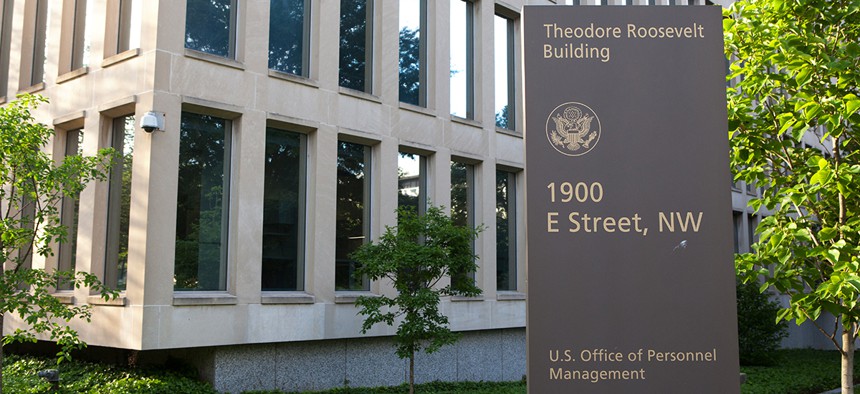Security Clearance Bureau Making Progress But No Timeline to End Backlog

Mark Van Scyoc/Shutterstock.com
The bureau is also working on technological efficiencies to cut investigation times.
The National Background Investigations Bureau has made significant progress hiring investigators and developing new tools but does not have a deadline yet for when it will clear out a substantial backlog in clearance seekers, an official said Wednesday.
Those wait times typically extend more than 200 days for an initial top secret clearance.
The bureau hired about 400 investigators last year and expects to hire about 180 more this year, Jim Onusko, director of the bureau’s Federal Investigative Records Enterprise, told an advisory panel.
» Get the best federal technology news and ideas delivered right to your inbox. Sign up here.
President Barack Obama launched NBIB in January 2016 after a China-linked breach at the Office of Personnel Management compromised highly sensitive security clearance information about more than 20 million current and former federal employees and their families.
The bureau effectively transfers responsibility for securing background check information from OPM to the Defense Department.
NBIB has made numerous top-level hires such as a chief of staff, legal adviser and legislative liaison, Onusco told members of the National Industrial Security Program Policy Advisory Committee. With approval from top intelligence officials, the bureau is also now accepting detailees from intelligence agencies, he said.
NBIB is also beefing up tools the government can use to continuously evaluate public records for evidence employee clearances should be reviewed.
By the end of next year, the bureau expects to be drawing in real time arrest information from numerous databases to check against records of cleared employees, Onusko said. The bureau is also working on a pilot program with “one large federal agency” to monitor employee social media for red flags, he said.
The bureau is working on building an updated database known as the National Background Investigation System that will make it easier to track and transfer information about cleared employees as they move between civilian and military government jobs and in and out of the private sector, he said, though there’s not a firm release date.
The bureau is also working with 18F, which describes itself as a tech startup within government, to update the electronic job application prospective employees fill out so that investigators have more detailed information about applicants before formal interviews, cutting down on the need for follow-ups.
18F awarded a $1.5 million contract for that system to the vendor TrueTandem in November, according to contracting records.
The clearance backlog was primarily caused by the 2014 canceling of a clearance vetting contract with the company USIS after the contractor suffered its own data breach, NBIB Director Charles Phalen has said. The OPM breach did not have a major impact on the backlog, he said.
NEXT STORY: Will Comey's encryption legacy at FBI go dark?






